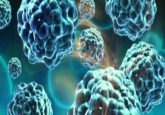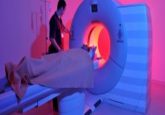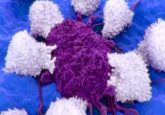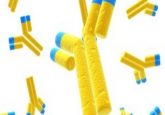T-cell receptor therapy demonstrates response in 80% of multiple myeloma patients

The results of a recent Phase I/II clinical trial indicate that an investigational T-cell receptor therapy that harnesses a patient’s own immune system generated a clinical response in 80% of multiple myeloma patients post-autologous stem cell transplant (ASCT). The results, published recently in Nature Medicine by experts from Penn Medicine’s Abramson Cancer Center (PA, USA), are also the first to indicate persistence beyond 1 month for such a lentiviral vector-mediated therapy.
The therapy utilizes engineered T cell that are modified to target cancer cells that express NY-ESO-1 – an antigen that can be identified in almost 60% of multiple myelomas. Each of the 20 enrolled patient received an infusion of on average 2.4 billion of their engineered T cells 2 days after receiving ASCT. Once infused, these cells are able to multiply and hone in on a particular peptide associated with both the NY-ESO-1 and LAGE-1 antigens found in multiple myeloma cancer cells.
After a median follow-up of 21.1 months, the result allowed the researchers to conclude that the engineered cells were both safe and able to travel to the tumor site in the bone marrow. Of those patients who reached the 2-year follow-up mark, the cells were found to have persisted in 90% following the infusion.
In terms of antitumor activity, 14 individuals had near complete responses, 2 had a very good partial response, 2 had a partial response, 1 had stable disease and 1 had progressive disease. Responses were observed within 3 months post treatment and overall compared well with the 40% expected response rate of patients without high-risk disease following an ASCT. There were no fatalities relating to the treatment and none of the study participants experienced cytokine-release syndrome.
At median follow-up of 21.1 months, 15 of the 20 patients were surviving and 10 remained progression free. At median follow-up of 30.1 months in April 2015, the median progression-free survival was 19.1 months and the median overall survival had increased to 32.1 months.
“This is an important step in immunotherapy research for multiple myeloma, a tough-to-beat cancer that is largely incurable, with a 5-year survival rate of approximately 50% – highlighting the need for new approaches to improve therapeutic options including after an ASCT,” commented Edward Stadtmauer, co-lead author from the Abramson Cancer Center . “I look forward to building upon this encouraging data and continuing to add to the growing body of research showing the promise of precision immunotherapies for blood cancers and more.”
Source: Penn Medicine press release





